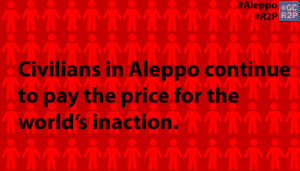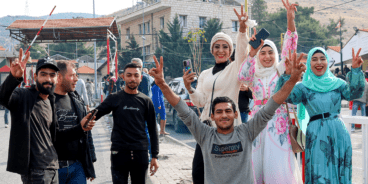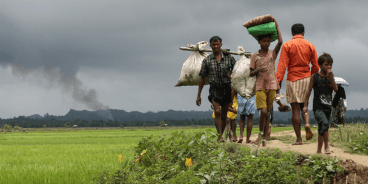Atrocity Alert No. 35: Syria
Atrocity Alert is a weekly publication by the Global Centre for the Responsibility to Protect highlighting and updating situations where populations are at risk of, or are enduring, mass atrocity crimes.

Aleppo, Syria
The tragedy of Aleppo, Syria, has entered its final phase. Since the renewed military offensive on Eastern Aleppo began on 15 November, the Syrian government and its foreign allies have retaken over 90 percent of rebel-held territory, leaving an estimated 50,000 Syrian civilians trapped. Following a brief ceasefire on 13 December to allow for opposition fighters and civilians to leave the city, airstrikes resumed early on 14 December. No evacuations of fighters or civilians were able to take place.
On 12 December the UN Office of the High Commissioner for Human Rights announced that they had received credible reports of government forces and their allies entering homes in East Aleppo and killing those found inside. Other reports indicated that pro-government forces had executed at least 82 people, including 11 women and 13 children, in four recently captured neighborhoods. If these reports are confirmed, they constitute war crimes and crimes against humanity.
During a bitter and acrimonious UN Security Council (UNSC) meeting on 13 December, the UN Secretary-General emphasized that the Council has not exercised its responsibility to maintain international peace and security, and he called upon the Syrian authorities, Russia and Iran to honor their obligations under international humanitarian law.
The fall of Aleppo comes after the UN General Assembly adopted a resolution on 9 December calling for the immediate implementation of a cessation of hostilities, an end to all attacks on civilians, and unhindered humanitarian access. The resolution, which passed with 122 votes in favor, demands that parties to the conflict take all appropriate steps to protect civilians, “and stresses that, in this regard, the primary responsibility to protect its population lies with the Syrian authorities.”
Tragically, the fall of Aleppo will not end Syria’s civil war. All sides remain committed to military victory, atrocities are still being perpetrated elsewhere in the country, and the intolerable suffering of Syrian civilians continues. The possibility of a political solution remains negligible.
Nevertheless, the international community must take immediate action to protect civilian lives in Syria. In light of the failure of the UNSC to take appropriate action, the General Assembly should hold an emergency special session and explore avenues to pursue accountability for all perpetrators of atrocity crimes in Syria. States should continue to push for unrestricted humanitarian access and must also uphold their responsibilities under the 1951 Refugee Convention and offer asylum to refugees from Aleppo and elsewhere.
Read Next

Atrocity Alert No. 421: Syria, Haiti and Genocide Remembrance and Prevention

Statement on the developing situation in Syria
